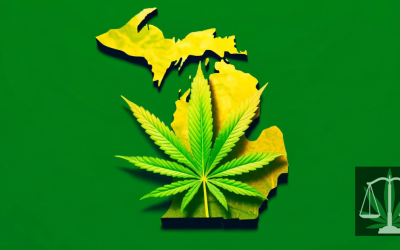The Michigan Hash Bash, a long-standing annual event celebrated in Ann Arbor, epitomizes the evolving legal landscape surrounding cannabis in Michigan. As a gathering that promotes cannabis advocacy and celebrates its legalization, Hash Bash presents a unique case study in the complexities of marijuana law, particularly in the interplay between state and federal regulations. Lets delve into the legal nuances of the Michigan Hash Bash, examining state legislation, federal constraints, and the event’s impact on local businesses and law enforcement.
The Genesis of Hash Bash and Michigan’s Cannabis Legislation
The Hash Bash began in 1972 as a rally for cannabis reform, following the Michigan Supreme Court’s decision to reduce penalties for marijuana possession. Over the years, it has transformed into a symbol of cannabis culture and activism.
The event gained a new dimension after Michigan legalized medical marijuana in 2008 and recreational cannabis in 2018 through the Michigan Regulation and Taxation of Marihuana Act (MRTMA). These legislative changes set the stage for a more open and legally permissible celebration of cannabis, yet they also introduced complex legal dynamics.
Navigating State Legislation and Local Ordinances
Michigan’s progressive steps towards cannabis legalization have significantly influenced the legal context of Hash Bash. Under the MRTMA, adults 21 and older can possess and use marijuana within certain limits. However, public consumption remains a legal gray area, directly impacting events like Hash Bash.
Local ordinances in Ann Arbor have been more lenient towards cannabis use, reflecting the city’s liberal stance. Yet, attendees must navigate a patchwork of laws where legal activities in Ann Arbor might not align with neighboring jurisdictions or state law.
The Federal Law Conundrum
Despite Michigan’s legalization of cannabis, federal law continues to classify marijuana as a Schedule I controlled substance. This dichotomy creates legal complexities for Hash Bash participants and organizers.
Federal properties and institutions, such as the University of Michigan campus, adhere to federal laws, prohibiting any form of cannabis possession or use. The clash between state legalization and federal prohibition poses challenges for enforcement and raises questions about jurisdiction and legal precedence.
Impacts on Local Businesses and Law Enforcement
The Hash Bash significantly affects Ann Arbor’s local economy and law enforcement practices. Businesses, especially dispensaries and cannabis-related enterprises, experience a surge in demand during the event, contributing to the local economy but also facing legal scrutiny to ensure compliance with licensing and regulatory requirements.
Law enforcement agencies must balance respecting state laws and local sentiments with the need to maintain public safety and order, often resulting in a tolerant but watchful approach during the event.
Legal and Social Implications
The Michigan Hash Bash serves as a microcosm of the broader national debate on cannabis legalization. It highlights the challenges of reconciling state and federal laws, the economic and social benefits of cannabis events, and the evolving public perception of marijuana. As such, it provides valuable insights into the complexities of cannabis legislation and its impact on society, law enforcement, and local economies.
Hash Bash as a Reflection of Cannabis Legalization’s Evolving Landscape
The Michigan Hash Bash is more than just an annual celebration of cannabis culture; it represents the intricate dance between advocacy, legislation, and societal norms. As Michigan and other states navigate the path of cannabis legalization, events like Hash Bash offer a lens through which to view the legal, economic, and social dynamics of marijuana in modern America.
Understanding these complexities is essential for stakeholders at all levels, from local businesses and law enforcement to policymakers and legal professionals, as they shape the future of cannabis in Michigan and beyond.
This exploration of the Michigan Hash Bash and its legal intricacies underscores the event’s significance in the broader context of cannabis reform and societal change. As Michigan continues to evolve in its approach to cannabis legislation, the Hash Bash remains a pivotal event, encapsulating the challenges and opportunities of marijuana legalization.
Cannabis Licensing Law
Cannabis Licensing Law, situated in Metro Detroit, is a leading authority on the legal aspects of obtaining both recreational and medical marijuana licenses in Michigan. Our firm delivers a wide range of services from the preliminary consultation phase to the successful acquisition of a license. We pride ourselves on our ability to tailor our services to the specific requirements of each client, expertly guiding them through the licensing procedures with the State of Michigan and the Cannabis Regulatory Agency.
In addition to our specialization in cannabis licensing, we are proficient in areas such as hemp licensing, protecting intellectual property, registering caregivers, and forming business entities. Our legal proficiency encompasses the preparation, evaluation, and negotiation of contracts to safeguard our clients’ interests in the cannabis sector. Our all-encompassing service model includes aid in obtaining trademarks and copyrights at both Federal and State levels, as well as support for Michigan residents in becoming registered caregivers.
Our firm is dedicated to offering personalized legal solutions, starting with an in-depth initial consultation to fully grasp the goals of our clients, followed by the development of a tailored legal plan. We are recognized for serving a wide range of clients, including award-winning cultivators, and are committed to maintaining a personalized touch throughout the licensing process. For more details or to book a consultation, please click here.



